4 things to know before you furnish a dining room - designers explain how to get them right
Design expert advice on how to set the stage for long dinners, relaxed dining rooms and perfect spaces for entertaining
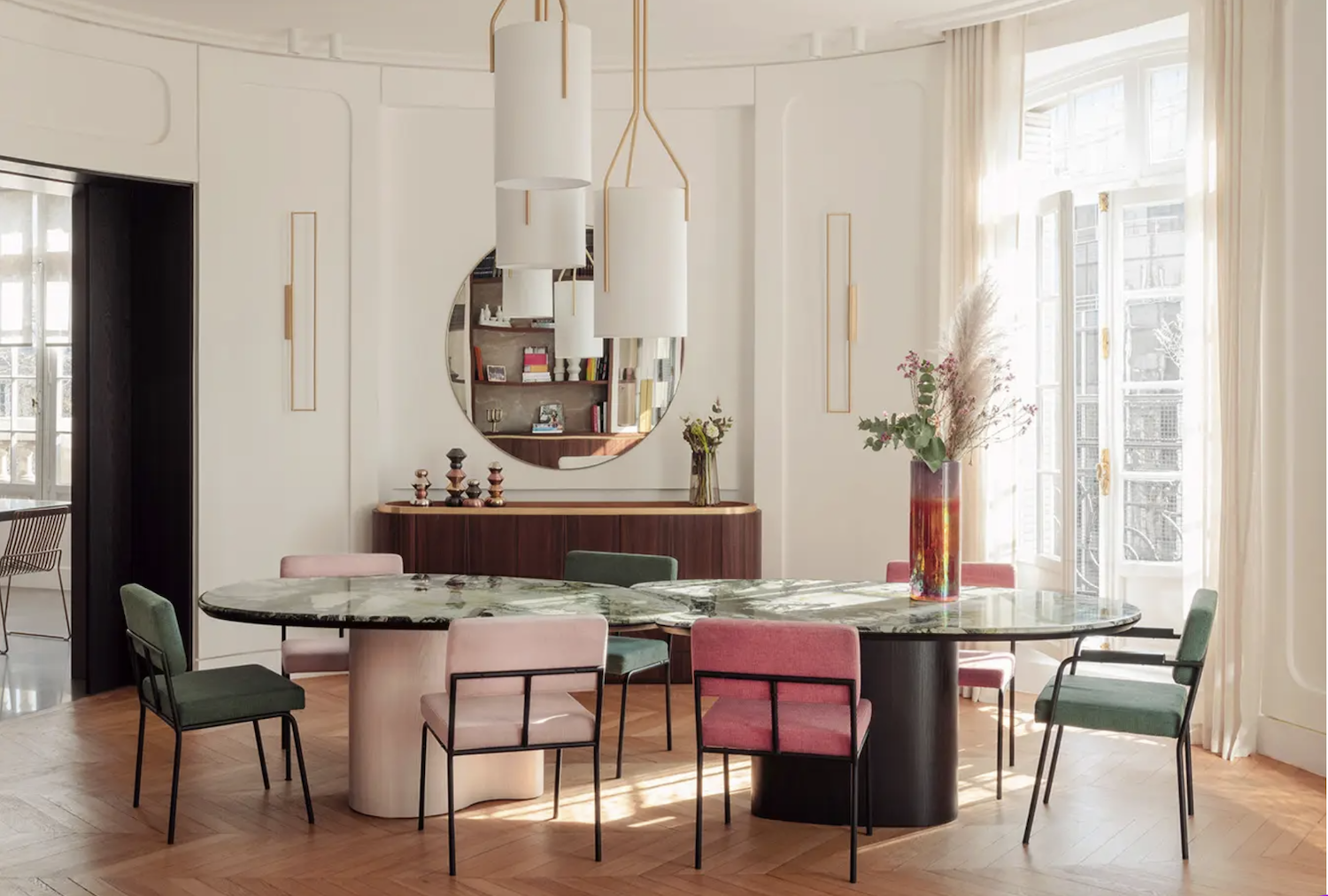
Whether you have regular family meals or love cooking for friends, the key element of any dining room is conversation. And, much like a welcoming tipple, your furnishings can have a big impact on how relaxed, confident and sociable people feel.
“Dining room furnishings should encourage conversations among your guests,” says Chantal Martinelli, Interior Designer and Co-founder of Mad Atelier. “The table, chairs and lighting are the most important elements, and they need to communicate with each other — which doesn't mean they have to be of the same style or epoque. It’s about interlacing shapes, materials, textures and tones. Together, they should set the space for sharing, whether it is food or ideas.”
4 things to know before you furnish a dining room
1. The room's dimensions
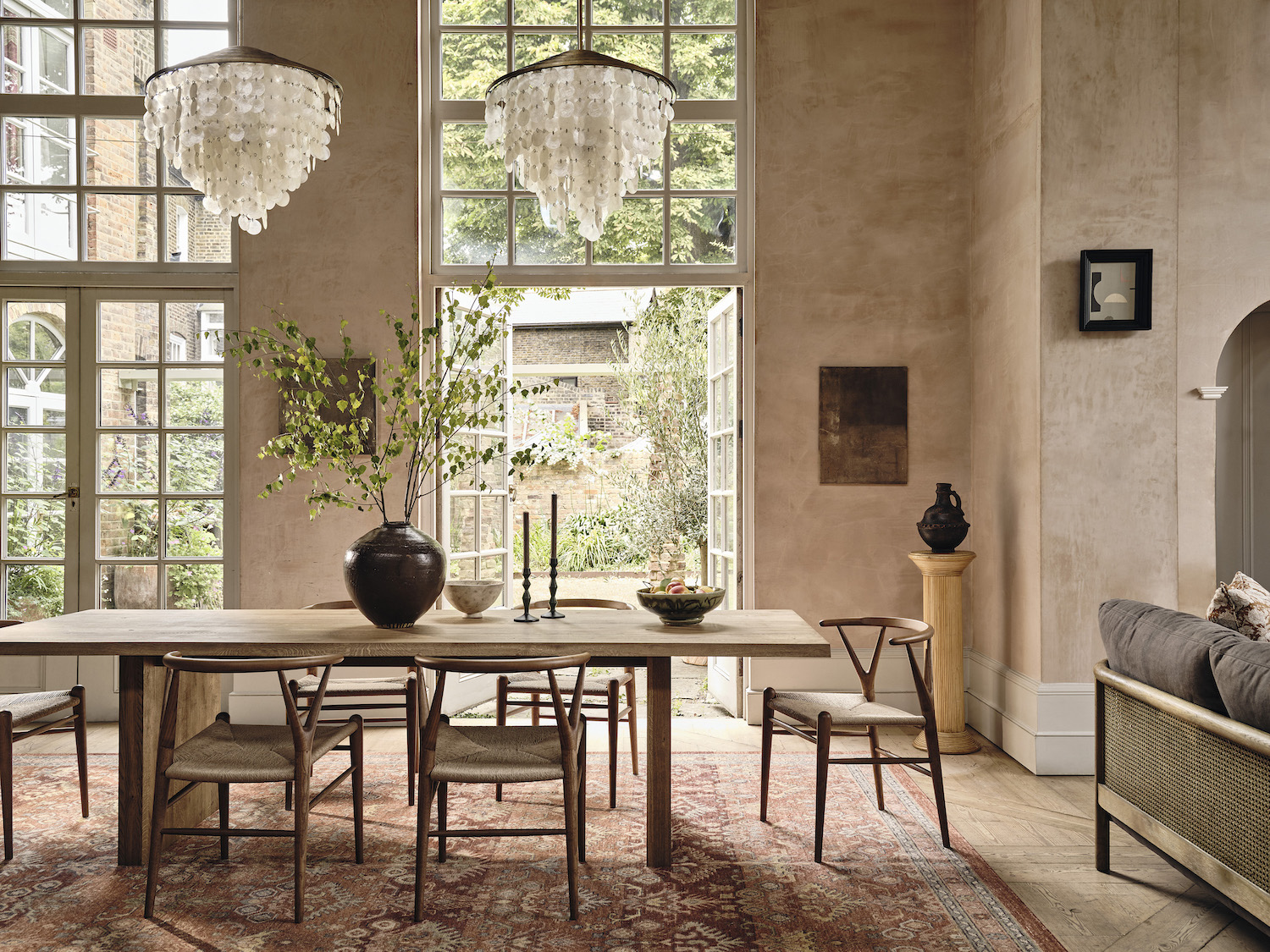
After deciding on the vibe you want to achieve (as with any design project, creating a mood board is a sensible first step), it’s time to get your tape measure out. People often underestimate or miscalculate the dimensions of their dining room, according to Chantal Martinelli at Mad Atelier.
“Dimensions and proportions are key, the space must flow around the furniture,” she says. “All the guests need to be able to move easily around the table. The proportions of a room are crucial to the wellbeing of the users. A long narrow room, for example, could enhance anxious feelings, while a well proportioned room brings a sense of calm. The interior designer has the power to optically reproportion the space using furniture, lighting and color accents.”
Depending on the size of your room, you may need to take multiple measurements for different pieces you’d like to include. “Measure the dimensions of the room and ensure that you know the approximate size of dining table that will fit,” says Candy Murray, an Interior Design Manager at Soho Home. “If you have a large room, think about any other pieces of furniture that you may need, like a bar cabinet or a console table.”
Dining table trends may come and go, but good seating will never be out of style. And when picking out chairs, make sure they are the right dimensions for both the table and the space overall. “It’s important to try out your selected chairs with the table to make sure they are comfortable and work with the height of the table ergonomically,” says Candy Murray. “Then consider the amount of circulation space around the table so people don’t feel squeezed in.”
2. The material of the table
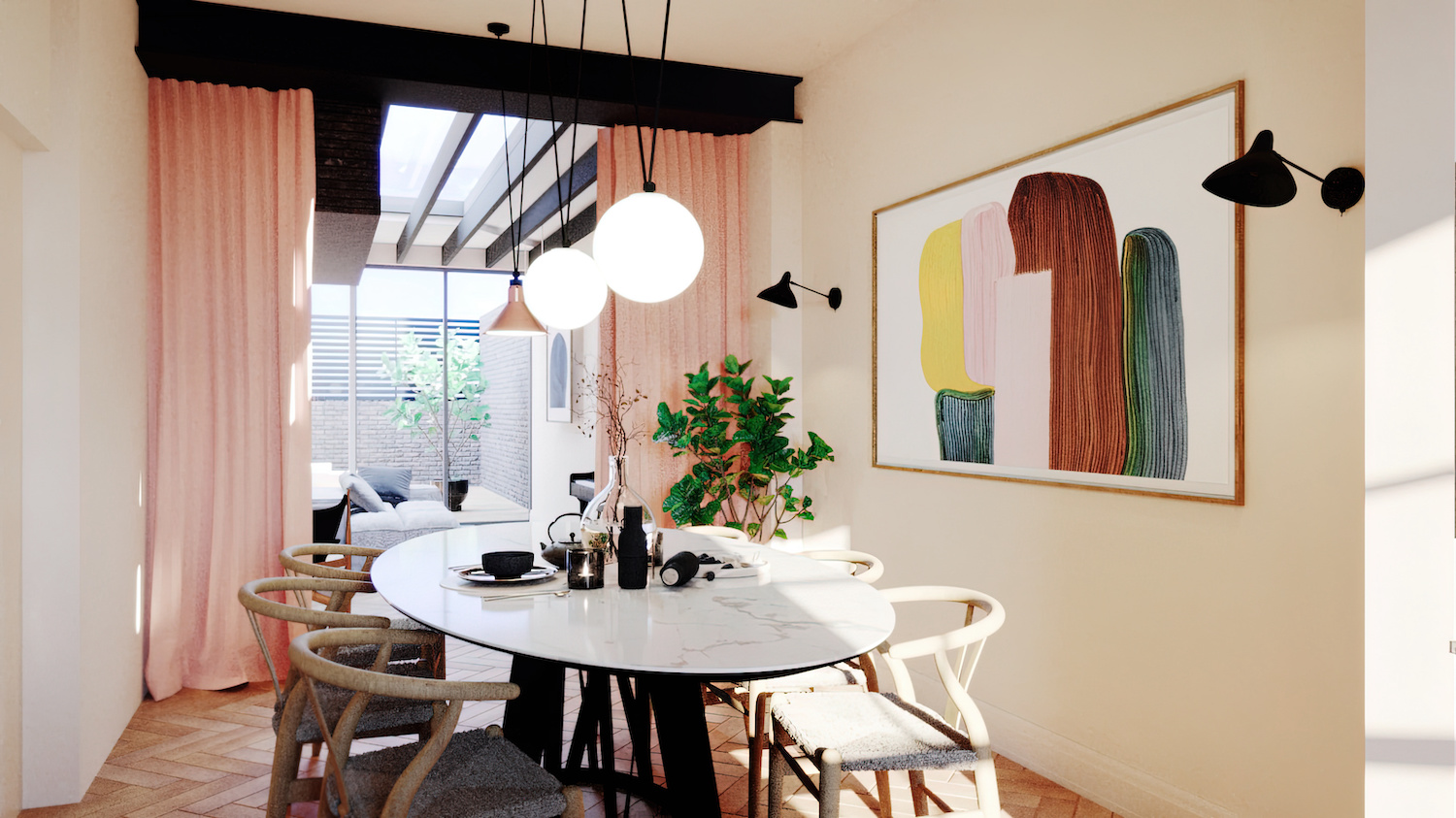
When it comes to choosing dining room furniture, there is no rule about the order. “But I often start by picking the dining table,” she says. “For me, it is the heart (and the spine) of the room. If you have a favorite chair or table, go ahead and start with that. The pieces you choose after will complement this particular piece. Having a piece that represents yourself in your dining area is very important.”
The Livingetc newsletters are your inside source for what’s shaping interiors now - and what’s next. Discover trend forecasts, smart style ideas, and curated shopping inspiration that brings design to life. Subscribe today and stay ahead of the curve.
Soho Home’s Candy Murray agrees that the table is the “hero” of the dining room. “Its material can really set the tone,” she adds. “For example, a solid marble top like our Murcell Oval Dining Table creates a sense of glamor and style, then a rustic live edge table creates a more relaxed modern farmhouse dining room style. Aside from the dining table, comfortable chairs are so important if you want your guests to stay with you for a good length of time. Add a rug to a dining setup to add to that lived in feel.”
3. Where the lighting will go
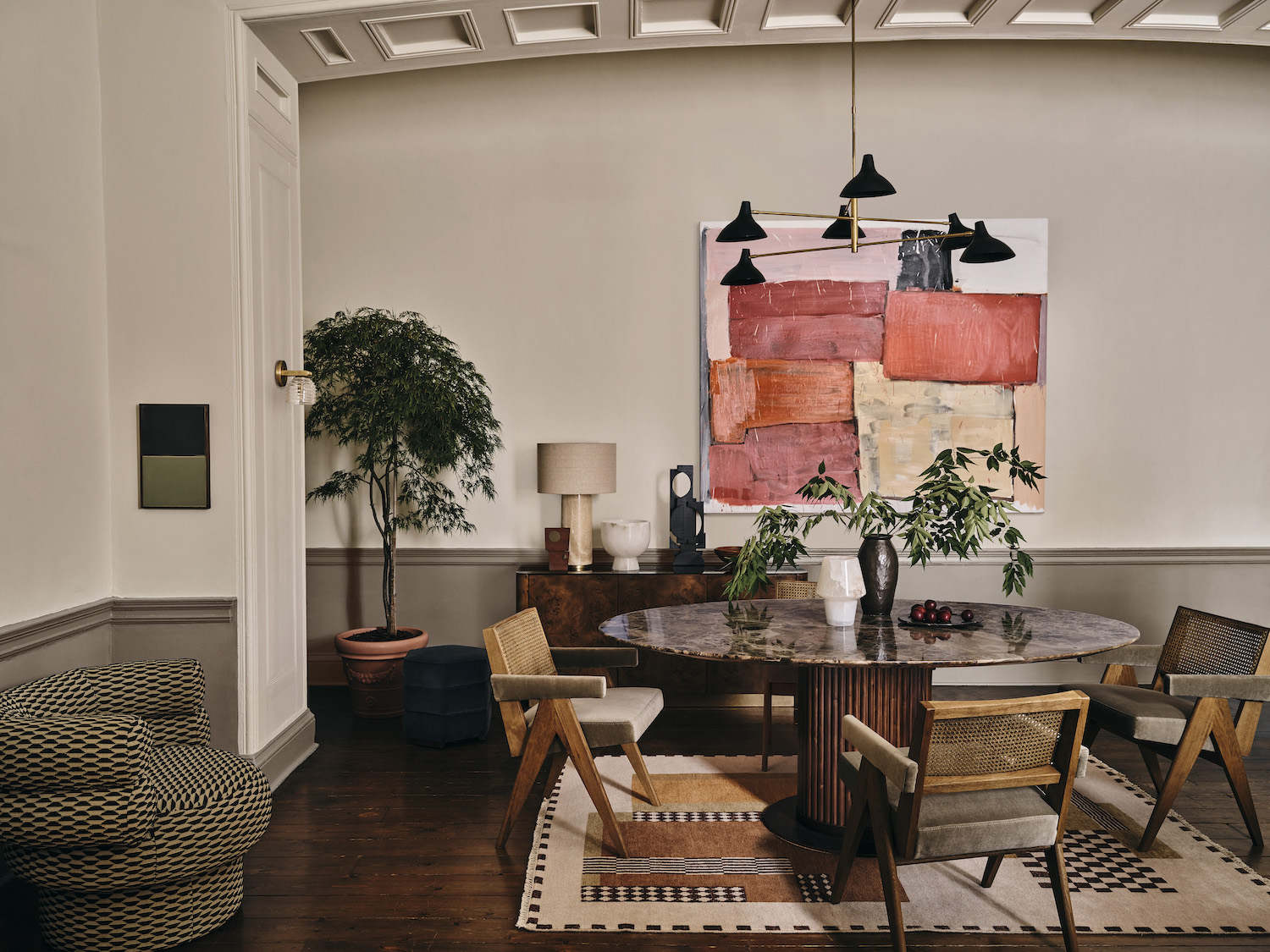
One of the most common dining room design mistakes people make is with lighting, according to Candy Murray. “Using recessed lights or cool LED lights completely changes the space, the room will always feel cold and unwelcoming,” she says. “Layered, cozy lighting is a must. The light levels need to be warm to make the colors of the food vibrant and show everything off at its best. I’d recommend using wall lights, glowy table lamps, and candles to ensure the lighting is flattering and cozy.”
Lighting can also impact the flow of conversation. “Lovely pendants, like floating hats or playful spheres, can wake up creative discussions,” says Chantal Martinelli. “Thumb ups to dimmers too, which add flexibility by allowing you to adapt lighting to the mood of the event you are hosting.”
4. The vibe of the accessories
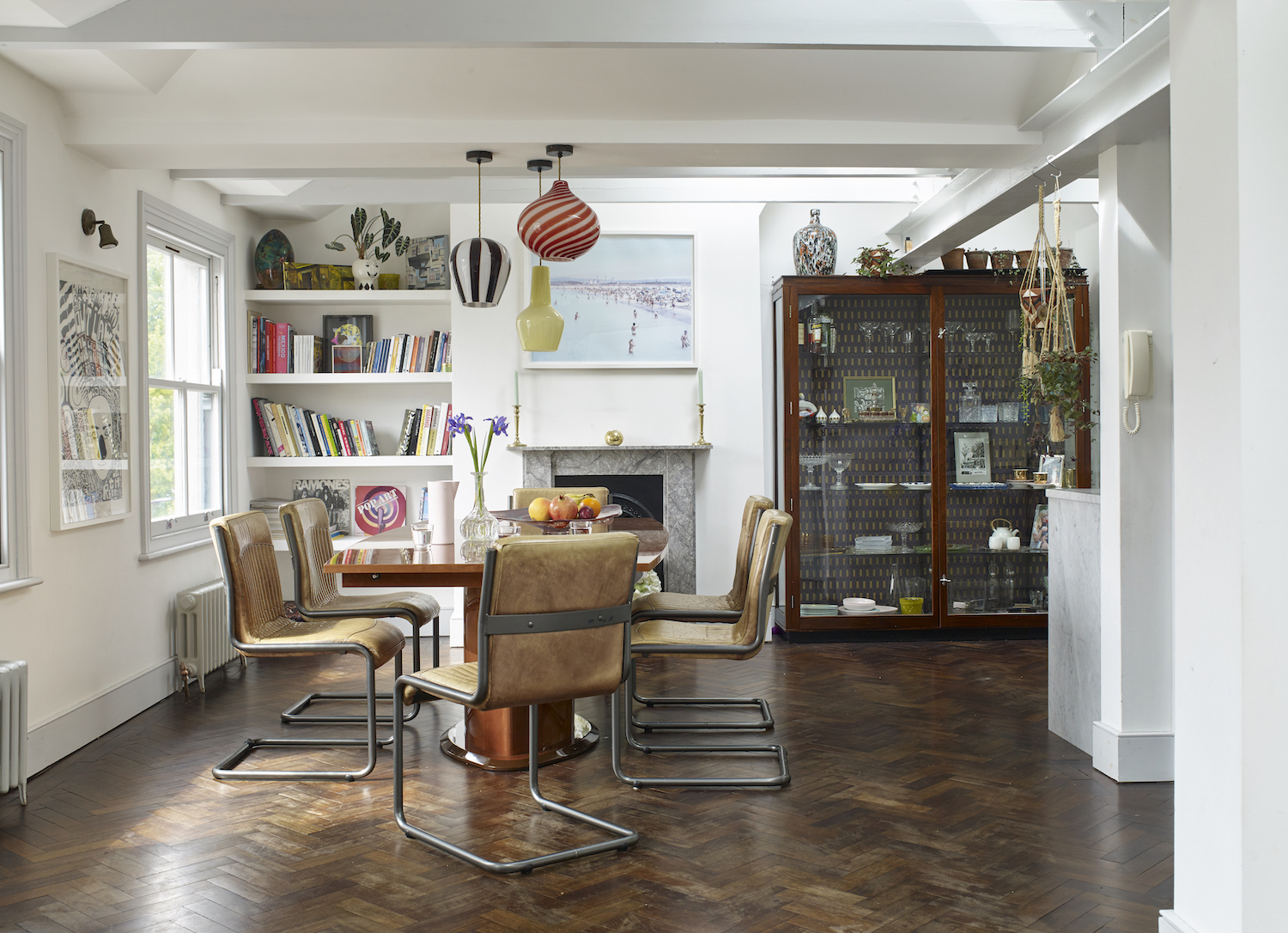
With your furniture planned out, you can start thinking about finishing touches like candles, crockery and place settings. This stage of the design process is the one you can really have some fun with. “Table dressing and accessories are somehow poetic objects, they bring us back to memories, travels, movies... They are very personal,” says Chantal Martinelli. “I think you can start searching for accessories as soon as you have set the mood. I have never seen crockery that didn’t go well with a table. Here the most crazy and hectic combos are always welcome!”
However, in creating a space designed for conversation, one household object should never be invited to the party: “No TV should be allowed in here,
” says Chantal Martinelli.
When it comes to table dressing, Soho Home’s Candy Murray recommends thinking about the style of the occasion you’re going to host. “Is there a sense of formality and glamor, or will it be a relaxed, family style occasion?” she says. “Choose accessories that complement the tone of your tabletop and occasion. Large, colorful serving platters, such as the Adderbury, work well on a timber table to create an informal tablescape paired with linen napkins. Meanwhile, crystal glassware and neutral tableware will create a more formal place setting when paired with a statement marble tabletop.”
She adds: “The space should not be too empty, or too crowded with unnecessary pieces. Showcase the objects that tell a story about you, the ones that you love the most.”
'I am obsessed with the fabric placemats at Society6' says Livingetc's editor Pip Rich. 'They are fun, casual, quirky - they set the tone for the ultimate relaxed dining table.'
It all comes down to considering the best experience for your guests, and adding flourishes that make space feel yours. Follow our experts' advice, and you’ll no doubt have many memorable evenings to look forward to.
Kate Hollowood is a freelance journalist who writes about a range of topics for Marie Claire UK, from current affairs to features on health, careers and relationships. She is a regular contributor to Livingetc, specializing in reporting on American designers and global interiors trends. Based in London, Kate has also written for titles like the i paper, Refinery29, Cosmopolitan and It’s Nice That.